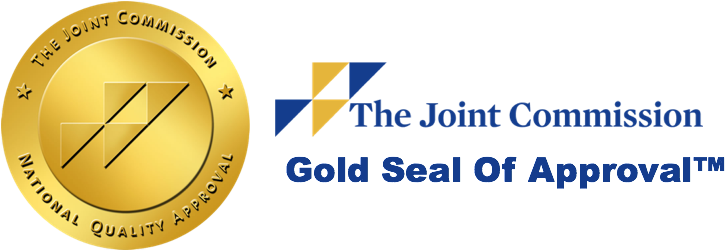If you need medication for your mental health, it is crucial to seek a consult with a mental health professional who treats conditions, not symptoms.
Primary Care Physicians Are Not Trained in Mental Health
When choosing a medication prescriber for mental health, it is vital to seek a consultation from a mental health professional. While primary care physicians are often the first line of defense when seeking medical help, they may not always be the best choice when choosing psychopharmacology. This is because primary care physicians are not always adequately trained in prescribing psychiatric medications. As a result, they may not be aware of the potential risks and side effects of the medicines they prescribe.
In addition, primary care physicians may not have the time or resources to properly monitor your progress on psychiatric medications, which can lead to you not getting the treatment you need as a result. Choosing a mental health professional as your primary care physician is an essential step in ensuring that you get the best possible care for your mental health.
Evaluation Is Key
Mental health medications are designed to help you when struggling with a mental health disorder. These medications improve symptoms and allow you to live a more active life. However, these prescriptions can lead to serious side effects. For this reason, it is crucial to get a comprehensive evaluation before starting any new pharmaceutical drug.
A full assessment will include a review of your medical history, a mental health evaluation, and a physical exam. This information will help your doctor choose the best medication for you and minimize the risk of side effects. If you are considering mental health medication, ask your doctor about getting a comprehensive evaluation first.
Make Sure Your Provider Is Patient-Centered
Patient-centered care is a model of assessing and prescribing mental health medications that puts you at the center of decision-making. This means that decisions about what medications to prescribe, how to monitor side effects, and when to make adjustments to treatment are made in collaboration with you. Patient-centered care aims to ensure that you receive the best possible care based on your individual needs and preferences.
Studies have shown that patient-centered care can improve patient satisfaction, treatment adherence, and clinical outcomes. In addition, patient-centered care can foster a more collaborative relationship between you and your provider.
Specialty Care Providers
Specialty mental health providers work specifically with you with anxiety, attention-deficit/hyperactivity disorder (ADHD), depression, and other common mental health conditions. These disorders can be complicated to live with, and specialty providers are trained to help you manage your symptoms and improve your quality of life. Specialty providers often use a combination of therapy, medication, and lifestyle changes to help you improve your symptoms.
Sometimes, specialty providers may utilize additional services, such as family counseling or support groups. These providers can make a significant difference when you are affected by these disorders. Finding a provider specializing in your condition may be a good idea if you or someone you know is struggling with anxiety, ADHD, post-traumatic stress disorder (PTSD), or depression.
Use Supplements at Your Own Risk
Over-the-counter supplements are not stringently regulated by the Food and Drug Administration (FDA), so it is critical to use them cautiously. Some supplements can have harmful side effects, and some may interact with prescription medications. If you are considering using a supplement for mental health, you must talk to your doctor first. They can help you weigh the risks and benefits and determine whether a supplement is right for you.
Supplements are not regulated, meaning there is no guarantee of their safety or efficacy. Additionally, some supplements can interact with prescription medications, so it is always best to consult a healthcare professional before taking them. Herbal supplements, in particular, can be dangerous if you have certain medical conditions.
For example, St. John’s wort can interfere with birth control pills and increase the risk of bleeding. So, while supplements may seem natural and harmless to improve mental health, it is vital to use them at your own risk. In addition, it is essential to know that supplements are not a substitute for professional medical treatment. If you are experiencing mental health issues, seek help from a licensed mental health professional.
Attend All Follow-up Appointments
It is crucial to remember that when you start taking medication for your mental health, ongoing management is necessary. You will need to attend all follow-up appointments with your provider and stay on top of medication management. This may seem like a lot, but it is a vital step in maintaining your mental health.
Medications can be a practical part of treatment, but they are not a cure-all. They must be combined with other treatments, such as therapy, to be most effective. And even then, they may not work for everyone. If you and your provider decide that medication is appropriate for you, it is essential to be vigilant in its management. It is the only way to ensure that you get the most benefit from the medication and minimize any potential side effects.
Find a Mental Health Professional at the Phoenix
When choosing a medication prescriber for mental health, it is imperative to seek the consult of a qualified mental health professional. Primary care physicians are ideal resources for general medical needs, but they are not experts in mental health or the treatment of mental health disorders. This is because primary care physicians are not always adequately trained in prescribing psychiatric medications, thus lacking knowledge of medication side effects and management. In addition, primary care physicians may not have the time or resources to properly monitor their patients’ progress on psychiatric medications, which can lead to not receiving the level of care they need or missing follow-up appointments. The right provider will ensure your mental health needs are met. For more information on choosing the right mental health professional for your psychiatric medication management, call The Phoenix Recovery Center today at (801) 438-3185.







